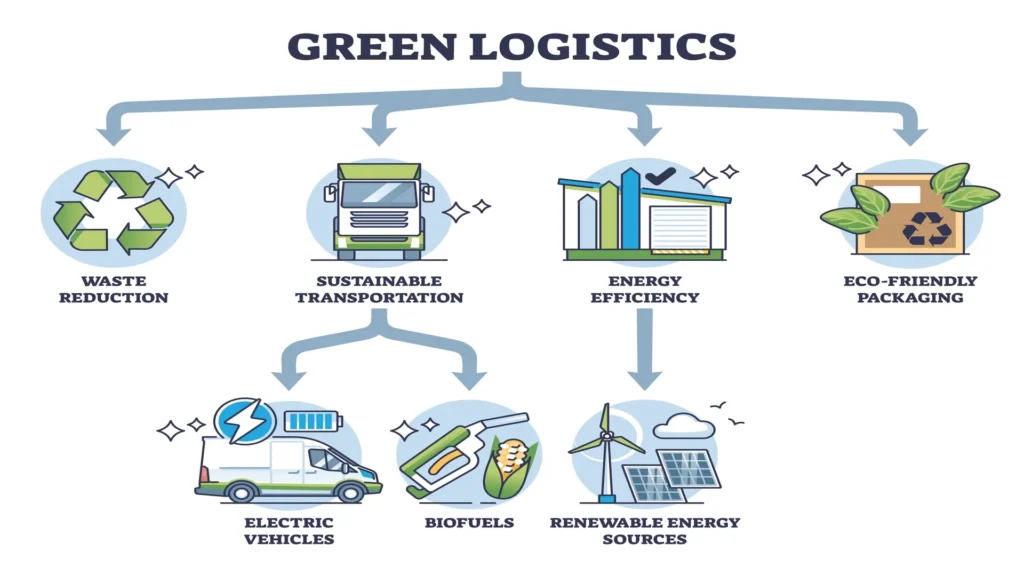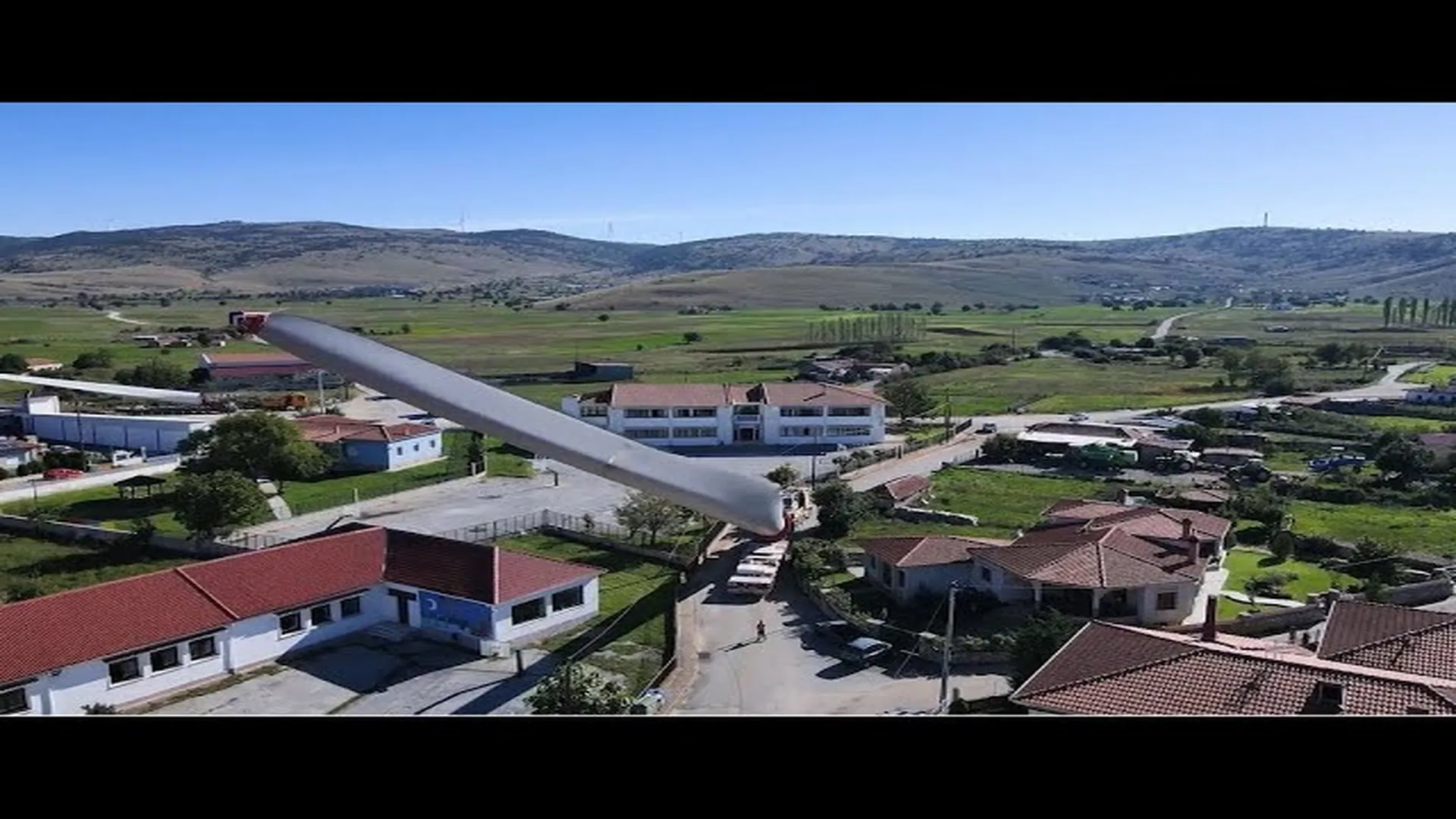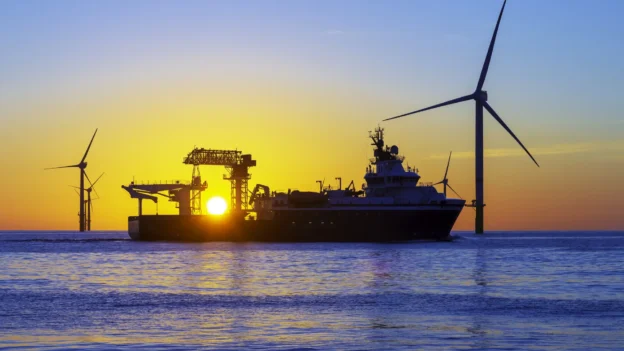Table of Contents
- Introduction
- Understanding the impact of logistics in the energy transition
- Green logistics as an enabler of the global energy transition
- Key logistical challenges in a changing energy landscape
- Smart logistics technologies for a sustainable energy transition
- Sustainable supply chain management during the energy transition
- Conclusions
- References
Introduction
The energy transition implies a global transformation towards renewable and low-carbon energy systems, which are dependent on the development of innovative technologies and efficient logistics operations. Logistics in the energy transition acts as the circulatory system of this process, integrating the efficient transport of materials, technologies and final product, together with accurate supply chain management to ensure the availability of resources at the necessary times and places.
This process depends on well-managed operations, such as smart logistics technologies, in order to reduce the risk of supply processes in renewable projects, obtaining maximum efficiency in time, safety, and cost. The logistics sector is not only based on transportation and delivery, it involves a series of integrated activities such as warehousing, international operations, order preparation and delivery, or raw material supplies.
Understanding the impact of logistics in the energy transition
What is energy logistics? It is a fundamental process for the global economy, as it manages the planning, execution, and control of the transportation of energy resources through the entire supply chain, from their origin to the final point of consumption. This process involves a careful and balanced assessment of demand and supply, coordinates transportation across multiple modes, and leverages advanced technologies for operational monitoring and adjustment.
What is the role of logistics in the energy transition? In the context of the transition to renewable energy sources, energy logistics aims to make renewable projects as sustainable as possible in each of their phases, from procurement, transportation, storage, and distribution of associated resources, facilitating a smooth and sustainable energy transition.
Logistics in the energy transition ensures the viability and sustainability of renewable energy sources such as solar, wind, biomass, and biofuels, which require adapting logistics to the unique characteristics of construction, production, and distribution of these resources, and additionally developing specialized infrastructures for their handling and distribution. Logistics operations in the energy transition are even an ally of sustainability.
Green logistics as an enabler of the global energy transition
Currently, one of the main objectives of many companies is based on achieving green or sustainable logistics, which significantly minimizes the environmental impact generated by logistics operations. To achieve this goal, it is necessary to modify and monitor each stage of the logistics chain to reduce emissions and achieve the transformation of strategies and the balance between economic and ecological efficiency.
By implementing strategies such as route optimization, real-time monitoring, and effective inventory management, green logistics reinforces the energy transition. These actions improve traceability and planning, and also adapt to the varying characteristics of renewable sources, promoting sustainable operations at every level.

For example, it ensures that components such as solar panels or wind turbine parts are transported efficiently, using advanced technologies to optimize routes and minimize fuel consumption. The integration of these practices and technologies ensures a sustainable supply chain capable of supporting the demands of a cleaner and fairer energy future for generations to come.
Key logistical challenges in a changing energy landscape
The transition to a renewables-based energy system requires the generation of abundant clean energy, which presents multiple logistical challenges during all phases of facility construction. Among the main ones are described1:
Materials procurement: The energy transition is highly dependent on the availability and sustainable supply of critical materials. Ensuring a constant supply of materials, which are often located in geopolitically complicated and distant regions, requires specific logistics strategies to ensure long-term availability.
Equipment manufacturing: This begins with the logistics of gathering materials and subcomponents, and then manufacturing and assembling large-scale equipment, such as wind turbine towers and blades, and bulk production of solar panels, which require specialized logistics operations and coordination between different suppliers, as well as quality control during manufacturing. Also included is the management of the infrastructure needed to manufacture these structures that demand precision in manufacturing.
Transportation to remote locations: The transportation from different parts of the world of the large and heavy equipment needed to build renewable facilities such as wind or solar farms (onshore or offshore) requires precise logistical operations involving special permits. The components are often routed to areas that are difficult to access, where the risks and costs involved in these complex logistics must be managed. This phase requires meticulous route planning, the use of specialized vehicles, and sometimes even modifications to the road infrastructure.
The following video courtesy of Ibedrola shows the magnitude and complexity of the logistical operations involved in the transportation of wind farm components.

A pioneer system for wind turbine blades transport.
Distribution of the clean energy produced: Finally, energy generated by renewable sources requires specific logistics to be distributed in the most efficient way. This raises the integration of intermittent energy into the existing grid and the development of smart grids that adapt to variable energy flows. In addition, the need for advanced energy storage systems is necessary to ensure that clean energy is supplied on a consistent basis.
Upgrading infrastructure: Upgrading existing infrastructure to transport renewable energy involves complex logistical operations, sometimes requiring the construction of new facilities, which would increase costs and logistical complexities, including the installation and maintenance of equipment that efficiently manages the energy produced by renewable sources and its integration into the existing power grid.
A good logistical organization and follow-up to all these phases of the projects are essential to overcome possible interruptions in the global supply chain and reduce risks, damages, complexities, and costs inherent to the projects.
Smart logistics technologies for a sustainable energy transition
Smart logistics, within the framework of the energy transition, allows for the optimization of logistics flows and overall transportation efficiency; it offers technological tools that facilitate greener, more effective, and more efficient activities. Several smart logistics technologies that drive a sustainable energy transition are described below:
- Route optimization and transportation planning: Transportation management systems (TMS) and route optimization tools help reduce carbon emissions and fuel consumption by planning efficient routes for transporting materials and equipment. This is achieved using advanced algorithms that consider factors such as supplier locations, traffic conditions, and weight and volume constraints.
- Real-time monitoring and tracking: GPS tracking devices and IoT sensors provide real-time visibility into the location and status of shipments, enabling better inventory control and rapid response to potential problems. This reduces the risk of delays, damage, and losses, improving overall supply chain efficiency.
- Reverse logistics and recycling: Refers to the process of returning end-of-life materials for reuse, recycling, or responsible disposal. Smart logistics technologies facilitate reverse logistics by tracking and managing the flow of returned materials, ensuring they are handled properly and minimizing environmental impact.
- Digitized supply chain: Digitization of the supply chain through the use of cloud platforms, blockchain, and other technologies improves the transparency and traceability of logistics operations in the energy transition.
Sustainable supply chain management during the energy transition
Robust supply chain solutions are needed for the energy transition to meet expectations and address environmental concerns. This means ensuring that the entire life cycle of renewable projects minimizes environmental impact. From the procurement of raw materials for the mega-projects involved in clean energy generation to the delivery of the clean energy produced, every step must be optimized for efficiency and emissions reduction.
In addition, sustainable supply chain management goes beyond immediate environmental concerns. It considers ethical labor practices throughout the chain, responsible sourcing of materials to avoid resource depletion, and even possible future uses for decommissioned clean energy infrastructure. A sustainable supply chain ensures that the energy transition is clean at source and truly effective throughout its journey.
Conclusions
The transition to a sustainable energy system depends critically on the effectiveness of logistics practices implemented along the entire supply chain, from the acquisition of raw materials to the final distribution of clean energy. By integrating and optimizing each stage of the process, logistics avoids delays that could result in wasted time and capital, ensuring efficient management of all resources.
Through route optimization, real-time monitoring, and effective inventory management, traceability and planning are improved, adapting to the diverse characteristics of renewable sources and promoting sustainable practices. These strategies, implemented through green logistics and smart logistics technologies, make it possible to maintain a sustainable supply chain.
When logistics in the energy transition is effective, it maintains a sustainable supply chain and facilitates a seamless and efficient flow that encompasses storage, transportation, and the strategic management necessary for the successful implementation of renewable energy projects, promoting a cleaner and fairer energy future for generations to come.
References
- https://www.iberdrola.com/conocenos/nuestra-empresa/energias-renovables/retos-logistica-transporte-proyectos-energias-renovables

